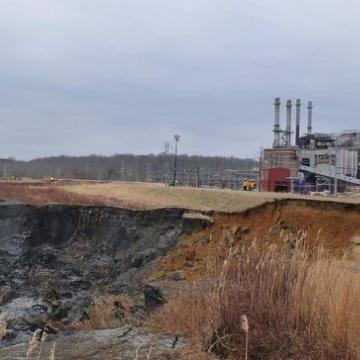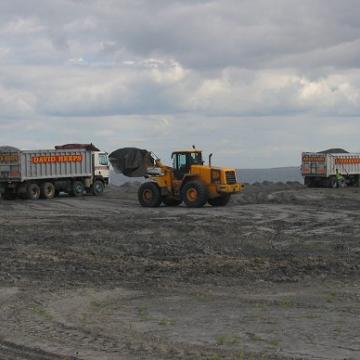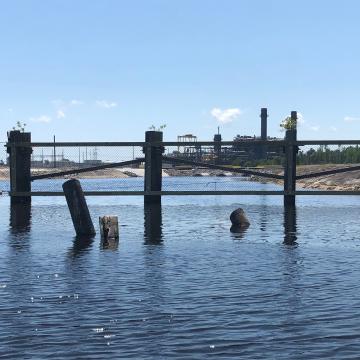-
NewsWith the Environmental Protection Agency (EPA) poised to loosen coal ash rules for dry onsite storage and large fill projects, a new study from Duke University finds that leaving those contaminants exposed may significantly heighten the risk of toxic contamination to nearby soil and waterways.
-
NewsAllowing coal ash to be spread on soil or stored in unlined pits and landfills will raise the risk that several toxic elements, including carcinogenic hexavalent chromium, could leach out of the coal ash and contaminate nearby water supplies across the U.S., according to preliminary findings from a new Duke University study.
-
NewsWhen Deborah Gallagher and her students began working on a study for the UN Global Compact about business leadership for planetary health two years ago, she never dreamed she’d end up sharing the stage at one of the biggest climate events in recent history.
-
NewsJunfeng “Jim” Zhang, professor of global and environmental health at Duke University, has received a $2 million grant to lead a four-year study on the effects of early-life and prenatal exposure to air pollution on birth weight and growth. These are two important predictors of childhood obesity.
-
NewsCoal ash solids found in sediments collected from Sutton Lake in 2015 and 2018 suggest the eastern North Carolina lake has been contaminated by multiple coal ash spills, most of them apparently unmonitored and unreported until now.
-
NewsChildren living in homes with all vinyl flooring or flame-retardant chemicals in the sofa have significantly higher concentrations of potentially harmful semi-volatile organic compounds (SVOCs) than children from homes where these materials are not present, according to a new Duke University-led study.














